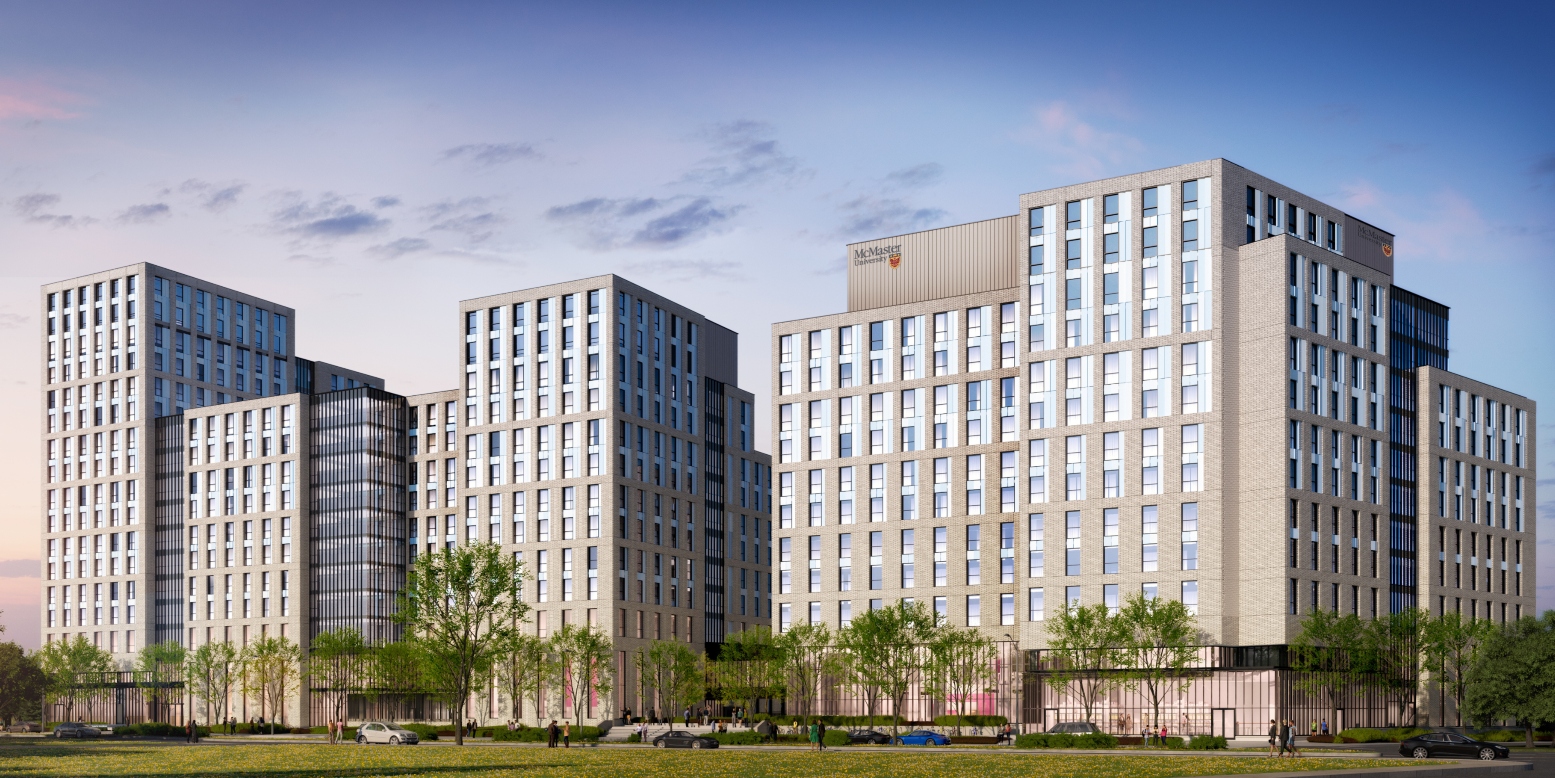McMaster University Breaks Ground on Largest and Most Innovative Student Residence Yet
Construction has officially begun on McMaster’s 15th and largest residence building, Lincoln Alexander Hall. Scheduled to open for Fall 2026, the residence will be home to 1,366 students and enable McMaster to guarantee housing for all first-year undergraduate students.
A groundbreaking ceremony was held Nov. 9 at the site of the future residence on Main Street West.
“This residence has long been an important priority for our university, and this groundbreaking represents a major milestone in McMaster’s commitment to expanding housing options for our students,” McMaster President David Farrar said at the ceremony.
“We know that now, more than ever, students need safe and supportive housing so I’m delighted to see this project officially underway.”

Lincoln Alexander Hall is McMaster’s latest housing expansion during a period of substantial residence growth. Since 2019, the university has added over 1,100 new residence spaces, and the upcoming campus plan envisions even more, including spaces in the Wilson College of Leadership and Civic Engagement, which is currently in the planning stages.
These additions will provide more housing stock in Hamilton for students and offer another layer of support as they transition to university.
“Students who live on campus are part of a community where the focus is on personal growth and academic success,” said Sean Van Koughnett, associate vice-president and dean of students.
“More than just a place to stay, living in residence provides first-year students with a sense of belonging and a strong foundation they build on throughout their time here.”
Olivia Saldanha, a Life Sciences student and a current Senior Community Advisor in the Brandon Hall residence, agrees.
“One cannot underestimate the positive impact residence can have on students,” said Saldanha. “It’s exciting that with the opening of Lincoln Alexander Hall, more first-year students will have access to the supports we have in residence and will have a community to rely on and a place to call home through the ups and downs of their first year.”
The vision of a vibrant, supportive residence community helped shape the decision to name the building after the late Lincoln Alexander.
A 1949 McMaster graduate, Alexander was an advocate for education and an activist for racial equity. He was Canada’s first Black MP, representing the Hamilton West riding, and was also the first Black cabinet minister and Ontario’s first Black lieutenant-governor, among scores of other honours at home and internationally.
“Lincoln Alexander was steadfastly devoted to life-long learning, social equity, and civic leadership – values we, at McMaster, share,” Farrar said at the ceremony. “Because of this, I can’t think of a more fitting and inspiring namesake for this building.”
Lincoln Alexander Hall will be one of McMaster’s most innovative residences: The building aim for will have an interior green space and will include over 325 bicycle spaces, underground car parking and a fitness area.
In addition, the McMaster Institution for Research on Aging will host an intergenerational hub designed to encourage students and older adults from the community to socialize and learn together.

